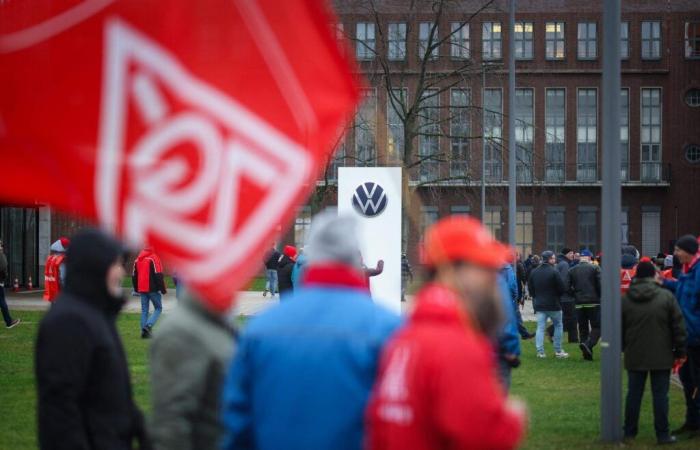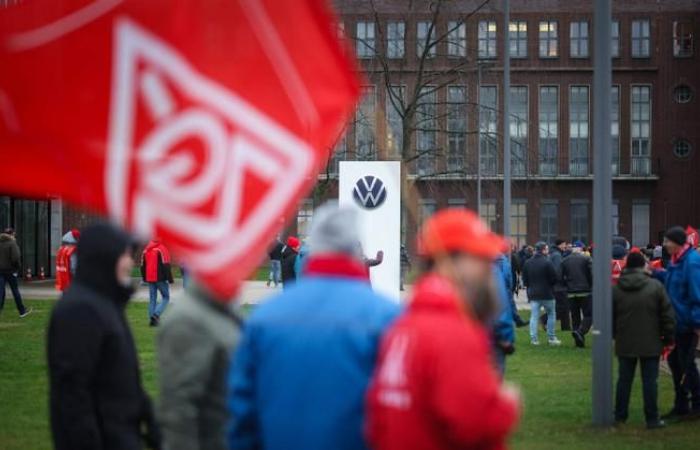Pressure is mounting on Oliver Blume, boss of the Volkswagen group. Monday, December 9, a second round of strikes disrupted production at nine of the manufacturer’s German sites. And 68,000 employees stopped work for a few hours, reports the IG Metall union. In Wolfsburg (Lower Saxony), a giant demonstration brought together tens of thousands of employees at the historic Volkswagen factory. In the automobile city, the fourth round of negotiations on salaries was held Monday afternoon, without result.
Read also | Article reserved for our subscribers Crisis at Volkswagen: the German social model put to the test
Read later
For now, the conflict is taking place within the framework of a ritual tested by decades of German-style co-management. Volkswagen’s last collective agreement ended on 1is December, which marked the end of the “peace period”, during which employees do not, in principle, have the right to strike.
Each round of negotiations between employers and unions is then preceded by so-called “warning” strikes, in order to put pressure on the discussions. IG Metall is demanding a 7% increase and job guarantees. In the rest of the industry, employees obtained a 5.5% salary increase in mid-November. An important sign of maintaining social dialogue, despite the acute crisis which is shaking the entire sector, where social plans have been multiplying for several months.
Except that the current negotiation at Volkswagen, which must determine the “in-house” price of the brand, is already extraordinary. Unlike previous cycles, no basis for negotiation has yet been established, no timetable seems to have been set by the two parties so far. Management wants a 10% pay cut, and has mentioned the closure of three factories, as well as redundancies, for the first time in the group’s history. Volkswagen wants to adapt its production capacities to a situation judged “serious” : demand for vehicles remains persistently weak in Europe, the group’s sales in China have collapsed, and the Germans face severe competition in electric and connected cars. Chinese profits, which had ensured social peace in Wolfsburg for fifteen years, have definitely dried up.
Deleterious atmosphere
During a visit to employees on Wednesday, December 4, Mr. Blume warned employees against demands that he considers unrealistic in the current situation. “We can make the best cars in the world, it doesn’t matter if we don’t make money from them”he warned, believing that it was necessary to continue to negotiate. IG Metall, for its part, has tabled a proposal which makes certain concessions on wages, but excludes any site closure. “Insufficient”opposed the management. Everything suggests that the standoff will continue beyond the Christmas holidays. This would worsen the already deleterious atmosphere which weighs on the country, a little more than two months before the early elections, scheduled for February 23, 2025.
You have 35.46% of this article left to read. The rest is reserved for subscribers.







